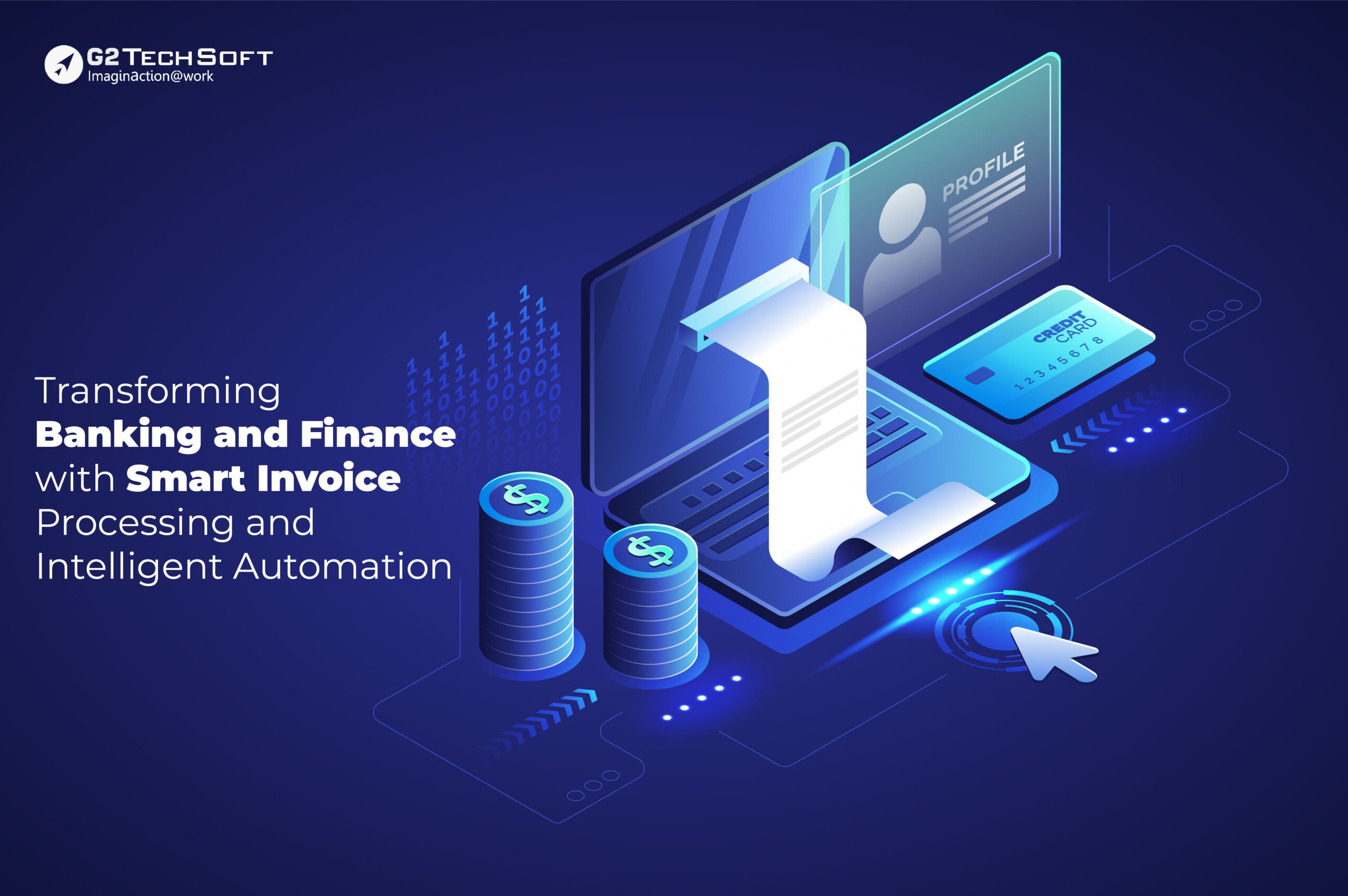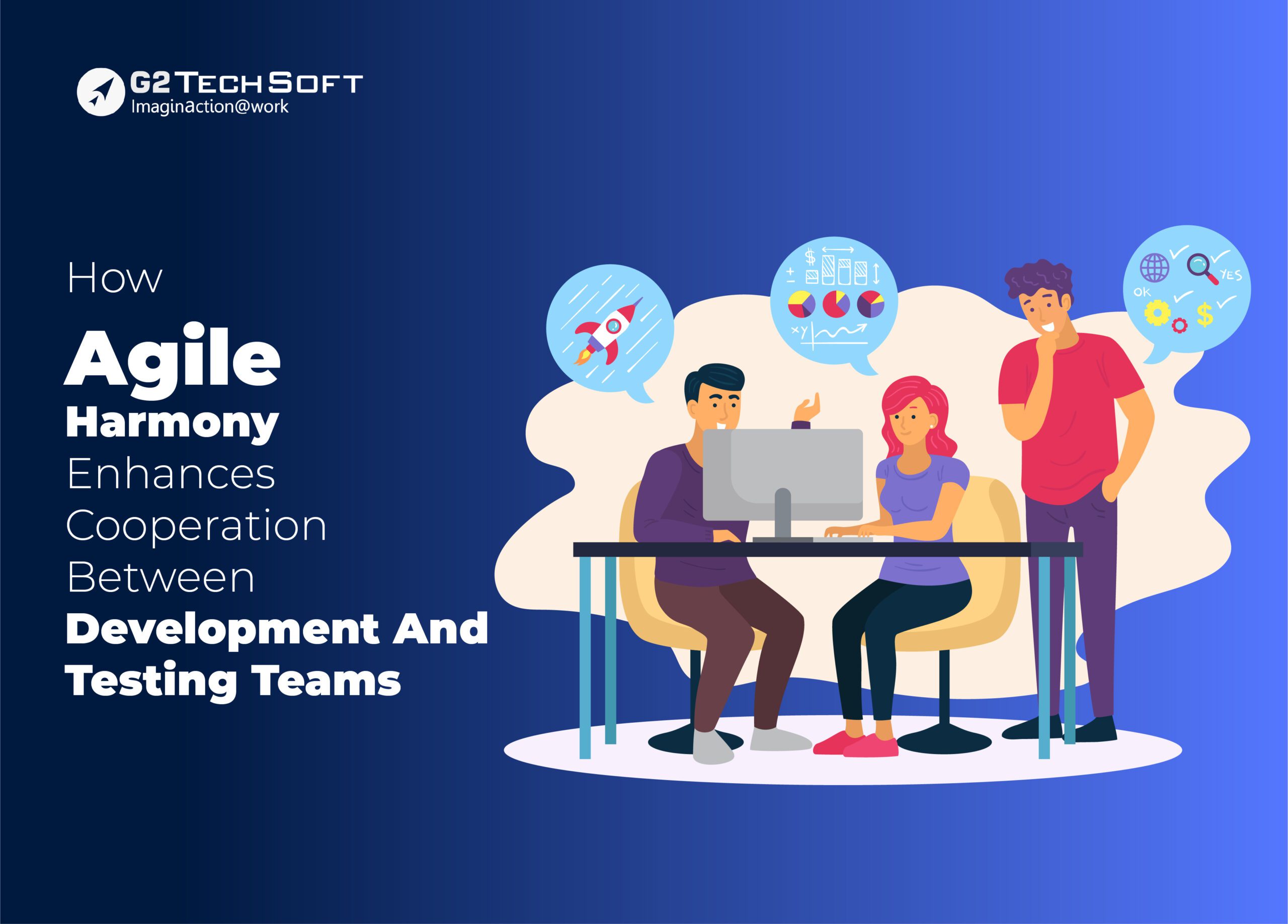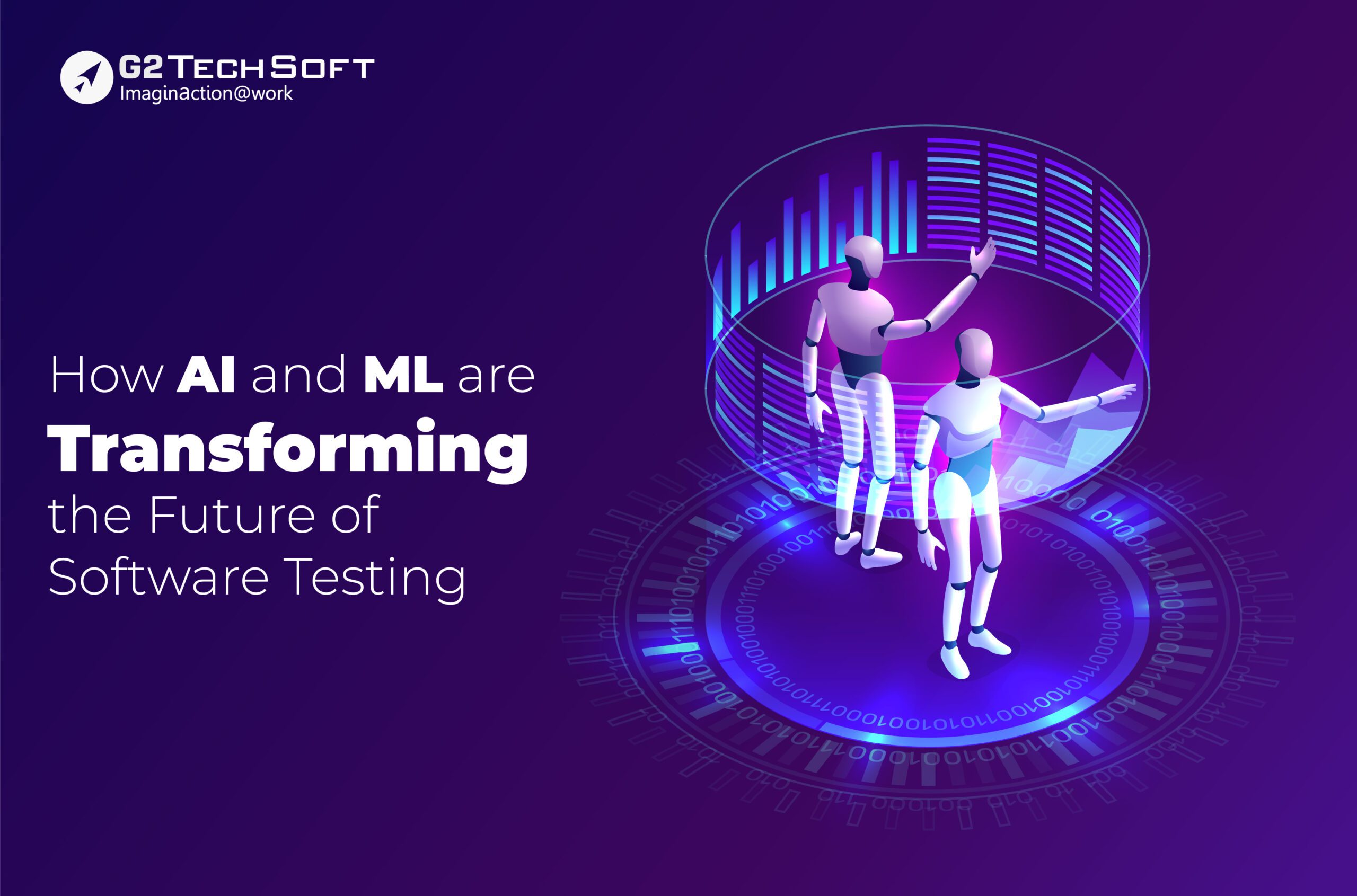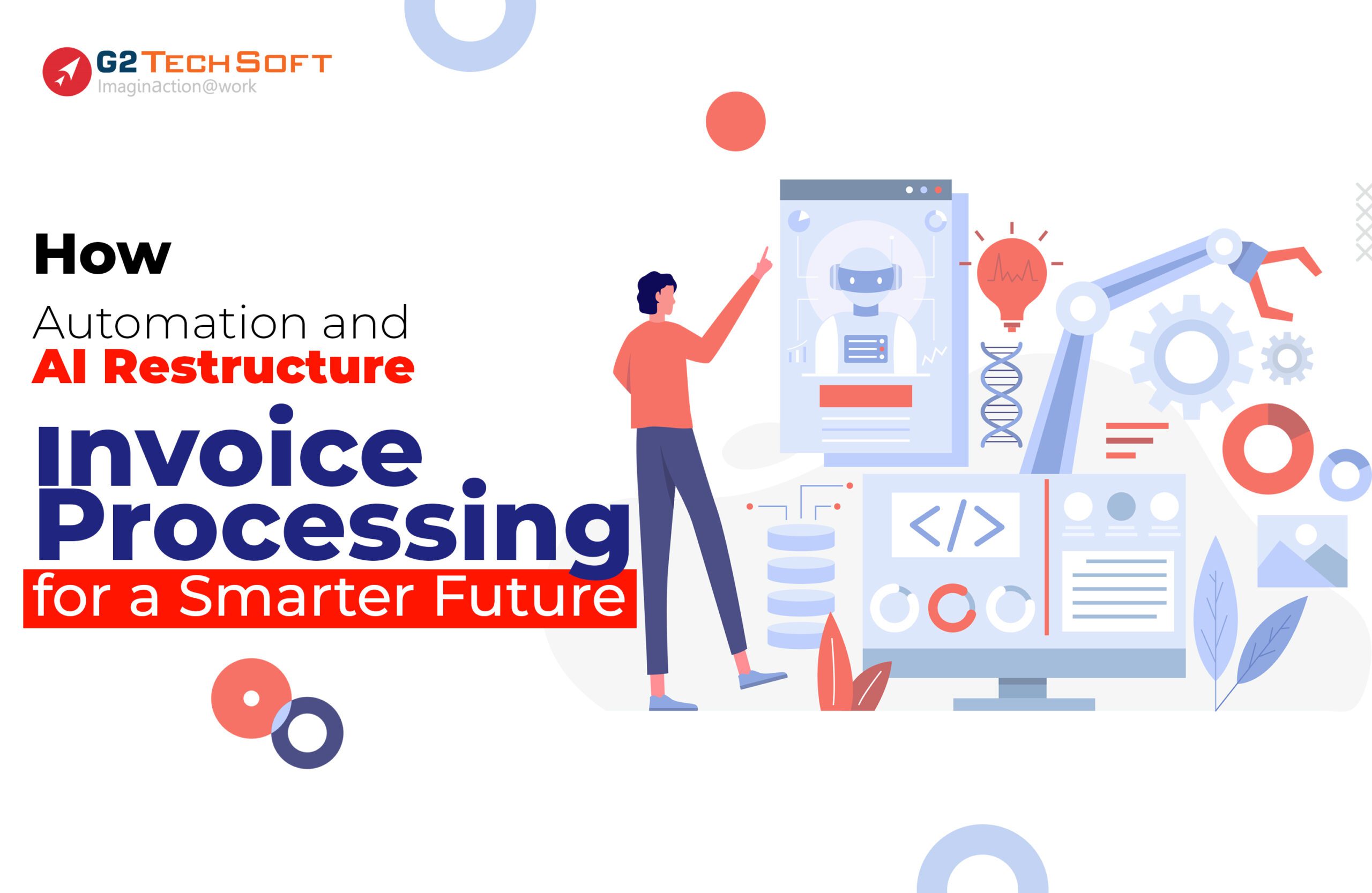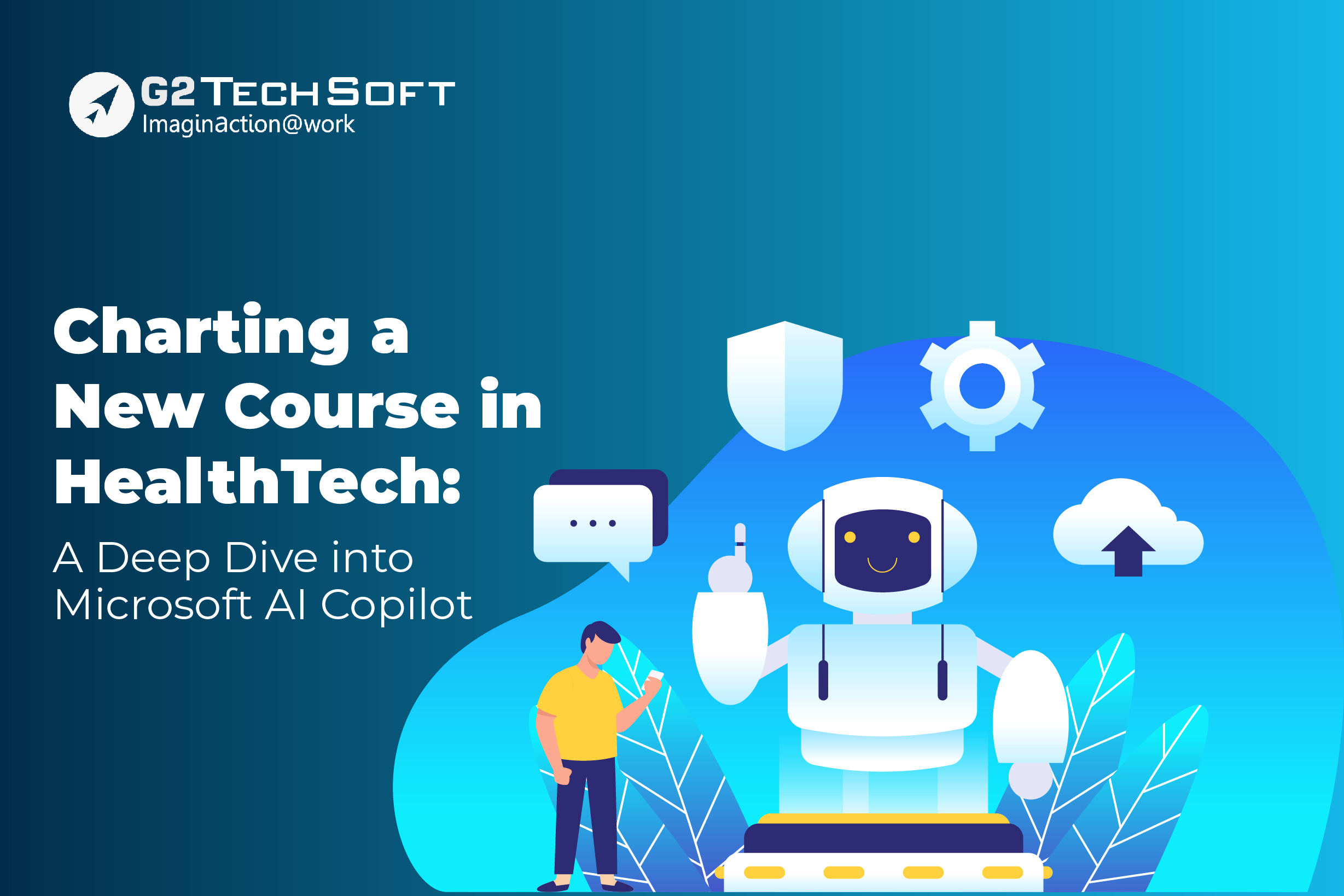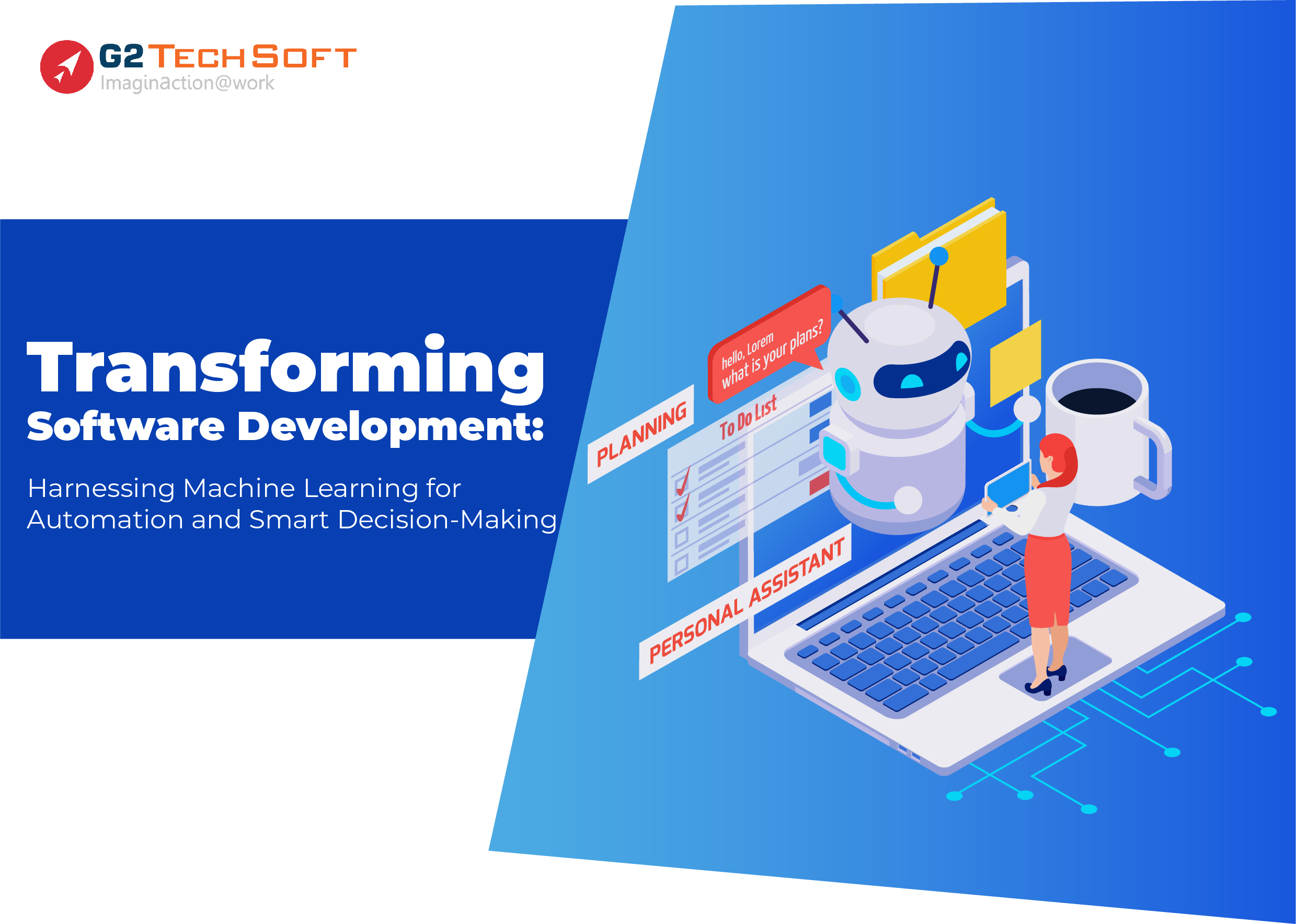
Transforming Software Development: Harnessing Machine Learning for Automation and Smart Decision-Making
Artificial intelligence (AI) and machine learning (ML) are transforming the software development process in several ways. These technologies can be used to automate tasks, improve code quality, and generate new ideas, thereby enhancing the overall software development process. As a result, AI and ML are helping to make software development faster, more efficient, and more cost-effective.
The market for AI and ML in software development is growing exponentially. In 2020, the market was valued at $1.5 billion. By 2025, it is expected to reach $39.9 billion. This growth is being driven by the increasing demand for software that is more intelligent, more personalized, and more secure, pushing organizations to adopt advanced software process models.
AI/ML Applications in Software Development
The use of AI and ML in the software development process is still in its early stages, but these technologies have the potential to revolutionize the way software is developed. In the future, AI and ML will likely play an even greater role in the software development process, helping to create more intelligent, personalized, and secure software solutions.
Here are some specific examples of how AI and ML are being integrated into the software development process:
- Automating tasks: AI can be used to automate repetitive tasks, such as code reviews and testing, streamlining the software development process and enabling developers to focus on more creative and strategic work.
- Improving code quality: AI can analyze code and identify potential defects, contributing to the enhancement of software quality and minimizing the number of bugs encountered throughout the software development process.
- Generating new ideas: AI can aid in generating fresh ideas for software features and designs, accelerating the development process and fostering innovation within the software development lifecycle.
AI/Machine Learning: Popular Tools and Technologies
Python is a highly popular programming language extensively utilized in the development process of software. It is often the language of choice for AI/ML development due to its ease of learning and usage. Moreover, Python boasts a vast library of libraries and frameworks that greatly facilitate the software development cycle.
When it comes to machine learning frameworks, TensorFlow and PyTorch are two prominent options. TensorFlow, an open-source framework developed by Google, is widely employed in various software development companies for tasks such as image recognition, natural language processing, and speech recognition. On the other hand, PyTorch, based on the Torch library from Facebook, excels in deep learning applications, playing a crucial role in the software development process.
To further aid the software development cycle, the Scikit-learn library offers an extensive range of algorithms for machine learning tasks. It is utilized by developers and software development companies to implement various techniques, including support vector machines, decision trees, and random forests.
For an efficient software implementation, Google Cloud ML Engine provides a cloud-based platform that simplifies the deployment of machine learning models. This platform benefits software development companies by offering pre-trained models, managed infrastructure, and a variety of APIs to expedite the software development process.
These powerful tools and platforms contribute significantly to the software development cycle, empowering developers and software development companies to create innovative and robust software solutions with efficiency and ease.
Empowering Software Development with Machine Learning
Machine learning (ML) has the potential to revolutionize traditional software development practices at their core. By enabling systems to function independently, ML can automate various tasks such as code optimization, testing, and deployment. This automation frees up developers’ time, allowing them to focus on more productive activities. Additionally, AI and ML can generate code based on specified requirements and inputs, streamlining the software development process.
Let’s delve deeper into the role of ML in software development:
Foundational prototyping:
Once client requirements are established and the core concept is defined, ML can extract data and leverage past and present models to create a suitable prototype. This significantly reduces the time and effort required for groundwork. Developers can enhance their ML prototyping practice by collecting and exploring datasets and employing domain knowledge for feature engineering.
Code structuring and review:
Clean and bug-free code is essential. ML can be employed to review and restructure code, making it more readable, consistent, and performant. ML utilizes compilers to read programming languages, automatically cleaning, debugging, or modifying code. Generating new code traditionally takes weeks or months, but ML can shorten this process to days. ML-enabled tools assist with preparation runs, variable predictions, and training models, optimizing the pipeline’s performance.
Writing code:
ML can teach computers to code through deep learning and code structure recognition. Developers create the source code while ML generates subsets, fills gaps through self-learning code writing, handles low-level details, and converts diagrams into code. Automated ML-powered tools can identify errors and eliminate ineffective code. ML models assess risk, detect anomalies, and improve user authentication, enhancing security, privacy, and fraud detection. ML reduces thousands of lines of code into hundreds, saving time and resources. This allows developers to focus on analyzing and testing results, creating curated and enhanced code.
However, while ML can create short programs and ancillary programs by learning from experience or historical data, it cannot fully develop extensive programs or accomplish the entire software development cycle, which requires human intelligence.
QA and Testing:
AI and ML have limited autonomy in this area currently but are expected to grow. They can automate unit test generation and parameterization, producing more accurate results for software testers. Smart programming assistants read technical documentation, debug code, and self-correct anomalies with minimal human intervention. Developers can create tests based on simple English inputs, while ML algorithms handle technical specifications, reducing the time required for manual testing. ML also aids in accurate project-cost estimations, minimizing downtime in the market and expediting deployment.
To effectively incorporate ML tools, it is crucial to plan each stage of development carefully. While full-fledged automation through ML is still a work in progress, employing a combination of supervised and unsupervised learning for Intelligent Process Automation (IPA) proves to be a promising approach.
Demystifying Machine Learning with Challenges and Considerations
Machine learning (ML) has become an integral part of software development services, bringing a new dimension to software development models. By harnessing ML capabilities, developers can create intelligent software solutions that enhance user experiences and deliver superior performance. However, incorporating ML into the software development process requires careful consideration and understanding of the challenges involved.
Software development services benefit greatly from ML as it enables automation, optimization, and innovation. ML can automate repetitive tasks, optimize code quality, and generate new ideas, revolutionizing the software development process. By integrating ML into software development models, developers can leverage its potential to create advanced and efficient solutions.
ML-powered software development requires a thoughtful approach to the process model in software engineering. The process model guides the overall software development lifecycle and encompasses various stages from requirements gathering to deployment. Integrating ML into the process model necessitates considerations for data acquisition, preprocessing, model training, evaluation, and deployment. Adapting the process model to accommodate ML-specific challenges ensures smooth and effective integration.
Furthermore, the choice of machine learning software plays a crucial role in software development. ML frameworks such as TensorFlow, PyTorch, and sci-kit-learn provide a rich set of tools and algorithms for building ML models. These frameworks empower developers to create powerful and scalable ML solutions, enabling the development of intelligent software.
However, there are challenges to overcome when working with ML in software development services and models. These challenges include data quality and availability, model interpretability, scalability, and the need for continuous learning and adaptation. Developers need to address these challenges and consider appropriate solutions to ensure the successful integration of ML into software development processes.
How G2 TechSoft Leveraged Software Development in ML
At G2TechSoft, we specialize in custom software development services, where we integrate machine learning and software engineering to deliver innovative solutions. Our deep expertise in the software process model in software engineering allows us to create tailored applications that meet your business requirements.
With our in-depth knowledge of deep learning software and advanced ML frameworks, such as TensorFlow and PyTorch, we empower businesses with intelligent software solutions. We follow a custom software development process that ensures the highest quality standards and efficient delivery.
Our team understands the unique challenges and opportunities that arise when combining machine learning and software engineering. We leverage ML techniques to analyze data, optimize code structures, and enhance the performance of your software applications.
Whether you need software development for business process automation, predictive analytics, or personalized user experiences, we have the expertise to deliver exceptional results. Our goal is to leverage the power of machine learning in software engineering to drive your business forward, enabling you to make data-driven decisions and achieve your objectives.
Partner with G2TechSoft for your software development needs, and let us transform your ideas into robust, scalable, and intelligent software solutions that propel your business toward success.
Conclusion
In summary, ML has significantly influenced software development services and models. By integrating ML into the software development process model, developers can unlock the potential of intelligent software solutions. Careful consideration of the challenges involved, along with the selection of suitable machine learning software, is essential for the successful incorporation of ML in software development. With the right approach, software development services can harness the power of ML to create innovative and high-performing software solutions.
